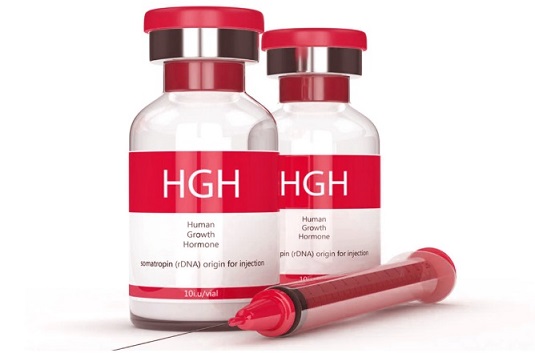Low Growth Hormone Levels May Increase Risk of Severe COVID-19, Hormone Therapy Offers Hope
Nikhil Prasad Fact checked by:Thailand Medical News Team Apr 16, 2025 3 days, 13 hours, 29 minutes ago
Medical News: A team of international researchers from Urmia University of Medical Sciences in Iran, Bilecik Şeyh Edebali University in Türkiye, and the University of Medical Sciences in Tabriz, Iran, has unveiled compelling evidence that links low levels of growth hormone (GH) to increased severity of COVID-19. Their recent review highlights how deficiencies in GH and its partner hormone, insulin-like growth factor-1 (IGF-1), may impair the body’s immune defenses during SARS-CoV-2 infection.

Growth hormone, commonly known for its role in childhood development, also plays a critical function in regulating immune responses. In this
Medical News report, scientists examined data from COVID-19 patients and found that individuals suffering from severe respiratory complications consistently had significantly reduced levels of GH and IGF-1. These reductions were not random but closely tied to the severity of lung involvement, hospital outcomes, and overall disease progression.
Hormones That Shape the Immune Battlefield
The review found that GH and IGF-1 deficiencies were not merely byproducts of illness, but likely contributing factors to why certain individuals experienced more severe outcomes. GH helps to balance immune activity and regulate inflammation. Without adequate levels, the immune system may overreact or become ineffective—both of which are dangerous when fighting off a viral invader like SARS-CoV-2.
Moreover, GH levels are naturally lower in the elderly and in males—two groups known to be disproportionately affected by severe COVID-19. People with chronic conditions like diabetes and obesity, which are also linked to lower GH production, had a higher risk of hospitalization and death from the virus.
A Path Toward New Therapies
Perhaps most promising is the review’s suggestion that GH supplementation could be explored as a potential treatment for COVID-19, especially in high-risk individuals. The authors pointed out that patients with higher GH levels were less likely to require hospitalization and tended to have milder symptoms. This implies GH may offer protective effects against the virus by boosting immune efficiency and reducing inflammatory damage in the lungs.
The study urges the medical community to further investigate GH therapy as a supportive option for vulnerable populations. If successful, GH treatments could not only reduce the severity of infections but also prevent long-term complications in recovering patients.
A New Understanding of COVID-19’s Complexity
This research contributes to a growing body of work suggesting that COVID-19 is not just a respiratory disease but also a condition that disrupts hormone systems and immune regulation. By identifying the role of GH in disease progression, the study opens up new possibilities for diagnosis, prevention, and treatment strategies that could transform care for future patients.
The study findings were published in the peer reviewed journal: Future Virology.
10.1080/17460794.2025.2491202">https://www.tandfonline.com/doi/full/10.1080/17460794.2025.2491202
For the latest COVID-19 News, keep on logging to Thailand
Medical News.
Read Also:
https://www.thailandmedical.news/news/higher-growth-hormone-levels-in-children-linked-to-reduced-covid-19-susceptibility-and-hospitalization-rate
https://www.thailandmedical.news/news/growth-hormone-treatment-offers-hope-for-long-covid-neurological-symptoms
https://www.thailandmedical.news/news/covid-9-news-university-of-texas-study-shows-that-low-growth-hormone-secretion-associated-with-long-covid-neurologic-symptoms
https://www.thailandmedical.news/pages/thailand_doctors_listings
https://www.thailandmedical.news/pages/thailand_hospital_listings
